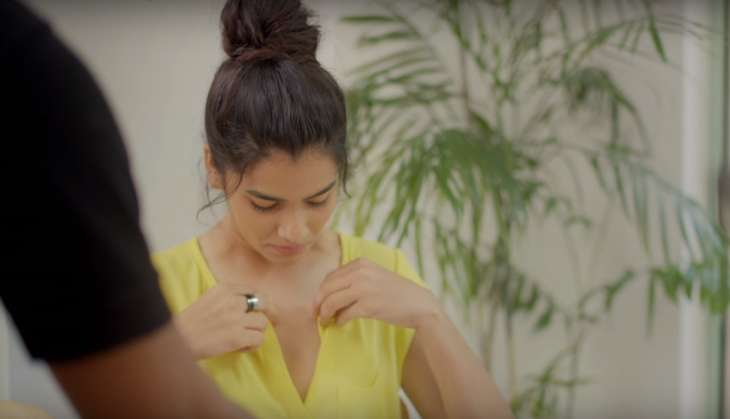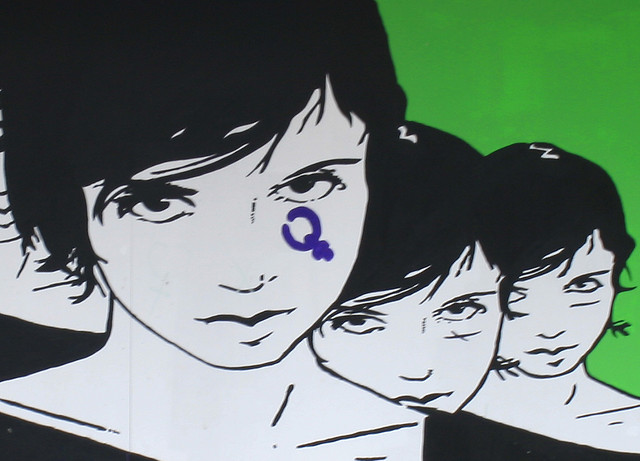
That tug at the hemline, the careful tucking away of bra straps, a slip of cloth worn to hide cleavage, dupattas to cover up when in need, jackets for bare arms, leggings for bare legs… Women are often looking for ways to hide their bodies, and not necessarily because they want to.
A recent viral advertisement by Elle India captioned ‘WEvolve: Let her be’ attempts to address this constant need women feel to shield themselves from unwanted attention.
While the manner in which the women in the ad quickly cover themselves is identifiable – the lowering of arms, buttoning up shirt, etc. – Elle seems to have made the typical upper class mistake of always seeing the working class as the problem.
A CLASS-IC CASE
Elle’s consumer is the urban, in all probability working, female. Class privilege is therefore a given for its ads. But regardless of that, if it felt the need to start the conversation about how women suffer from this gaze, the least it could’ve done is rise above its own biases.
The ad makes one look at the women through the gaze of a waiter, a cabbie, a driver, a hairstylist, a gardener, an office boy and a delivery boy. All of them belong to a particular social class that the women in the ad, quite conspicuously, don’t belong to.
She’s the coffee drinker, the car owner, English book reader, salon goer, group yoga practitioner, macbook owner… She’s not every Indian woman, not even close, and that doesn’t make her insecurities any less. But that also doesn’t make her discomfort with a certain class only about the male gaze.
It is hard to notice the problem with the ad. And that’s because we, largely speaking, belong to this privileged class as well.
We are surprised when these class, caste, religion barriers are broken. We are surprised when we find ourselves alone in a local market at night and not stared down by the workers. We are surprised when impeccably dressed men at posh South Delhi parties make crass jokes about women.
We are surprised because we see the world as ‘us’ and ‘them’. We quite naturally distance ourselves from what constitutes a threat, and therefore a threat is always a ‘them’. And as long as we have the upper standing in society, we see the problem as fixable, because ‘they’ are always lesser than ‘us’ and, therefore, in need of our guidance.
LET WHOM BE
To think that the problem of the male gaze is limited to a certain social class is as myopic a view as thinking that women are sexually attacked for their attire. The men in our offices, the men we meet at seminars, debates, discussions, the men who teach at institutions, the men we date, the men we ‘friendzone’, the men in our family, our brothers, fathers, sons, partners, all have the potential to make us uncomfortable.
Be it the protective gaze that expects us to cover up as a sign of respect, the envious gaze when we outperform them at work, the steadfast gaze when there’s an attempt to show us our place, or the hopeful gaze that we’ll finally have sex with them, men around us, just like “those men” on the streets, aren’t comfortable with financially independent, sexually liberated women. And they do make us uncomfortable.
But Elle, in its ad, chose to not show those men, because we’re yet to come to terms with that possibility. It is easier to show the men who are outside of these conversations as the perpetrators, as the cause for our eternal battle with the gaze.
It is easier to tell ourselves that the threat looms outside, on the streets, in dirty markets. The threat speaks a language we don’t, it doesn’t have the education we’ve had, it is uncouth, unpolished.
Because the moment we acknowledge that the threat is everywhere, we run out of safe spaces. Yes, the unwanted male gaze is a major issue faced by women across India, but by consciously or unconsciously, portraying this as a primarily class based issue, Elle have only addressed a small part of a larger problem.
http://www.catchnews.com/gender-and-sex/let-her-be-viral-ad-being-hailed-as-feminist-is-actually-pretty-classist-1486398098.html

Leave a Reply